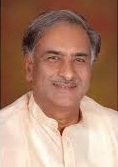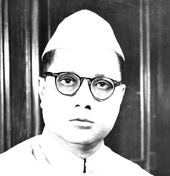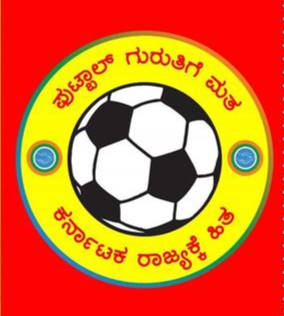|
Karnataka Legislature
The Karnataka Legislature is the bicameral legislature of the Indian state of Karnataka. The Legislature is composed of: *the Karnataka Legislative Council, the upper house, *the Karnataka Legislative Assembly, the lower house, and *the Governor of Karnataka References Bicameral legislatures Legislature A legislature (, ) is a deliberative assembly with the legal authority to make laws for a political entity such as a country, nation or city on behalf of the people therein. They are often contrasted with the executive and judicial power ... State legislatures of India {{India-gov-stub ... [...More Info...] [...Related Items...] OR: [Wikipedia] [Google] [Baidu] |
Emblem Of Karnataka
The Emblem of Karnataka is the official state emblem of the Karnataka, State of Karnataka, India. It is based on that of the Kingdom of Mysore, and is carried on all official correspondences made by the Government of Karnataka. Design The state emblem has a red shield charged with a white two-headed bird, Gandabherunda bordered in blue. The crest depicts the Lion Capital of Ashoka (also used as the emblem of the Government of India), on a blue circular abacus with a blue frieze carrying sculptures in high relief of a galloping horse on the left, a Dharmachakra in centre, a bull on the right, and the outlines of Dharmachakras on the extreme left and right as part of Sarnath's Emblem of India, Ashoka Pillar. The shield is flanked on either side by red-maned, yellow lion-elephant indicating the auspicious mythological character ''Gajakesari'', a hybrid form of two wise and powerful animals Lion and Elephant - a mythical creature believed to be auspicious and indicate strength, aut ... [...More Info...] [...Related Items...] OR: [Wikipedia] [Google] [Baidu] |
List Of Chief Ministers Of Karnataka
The chief minister of Karnataka is the chief executive officer of the government of the Indian state of Karnataka. As per the Constitution of India, the governor of Karnataka is the state's ''de jure'' head, but '' de facto'' executive authority rests with the chief minister, a template applicable to all other Indian states. Following elections to the Karnataka Legislative Assembly, the governor usually invites the political party (or a coalition of political parties) with a majority of assembly seats to form the government in the state. The governor appoints the chief minister, whose Council of Ministers is collectively responsible to the assembly. Given that he/she has the confidence of the assembly, the chief minister's term is for five years, renewable, and is subject to no term limits. Historically, this office replaced that of the dewan of Mysore of the erstwhile Kingdom of Mysore with India's constitution into a republic. Since 1947, there have been a total of twent ... [...More Info...] [...Related Items...] OR: [Wikipedia] [Google] [Baidu] |
First-past-the-post Voting
First-past-the-post (FPTP)—also called choose-one, first-preference plurality (FPP), or simply plurality—is a single-winner voting rule. Voters mark one candidate as their favorite, or first-preference, and the candidate with more first-preference votes than any other candidate (a ''plurality'') is elected, even if they do not have more than half of votes (a '' majority''). FPP has been used to elect part of the British House of Commons since the Middle Ages before spreading throughout the British Empire. Throughout the 20th century, many countries that previously used FPP have abandoned it in favor of other electoral systems, including the former British colonies of Australia and New Zealand. FPP is still officially used in the majority of US states for most elections. However, the combination of partisan primaries and a two-party system in these jurisdictions means that most American elections behave effectively like two-round systems, in which the first round ch ... [...More Info...] [...Related Items...] OR: [Wikipedia] [Google] [Baidu] |
Single Transferable Vote
The single transferable vote (STV) or proportional-ranked choice voting (P-RCV) is a multi-winner electoral system in which each voter casts a single vote in the form of a ranked ballot. Voters have the option to rank candidates, and their vote may be transferred according to alternative preferences if their preferred candidate is eliminated or elected with surplus votes, so that their vote is used to elect someone they prefer over others in the running. STV aims to approach proportional representation based on votes cast in the district where it is used, so that each vote is worth about the same as another. STV is a family of multi-winner proportional representation electoral systems. The proportionality of its results and the proportion of votes actually used to elect someone are equivalent to those produced by proportional representation election systems based on lists. STV systems can be thought of as a variation on the largest remainders method that uses candidate-based so ... [...More Info...] [...Related Items...] OR: [Wikipedia] [Google] [Baidu] |
Independent Politician
An independent politician or non-affiliated politician is a politician not affiliated with any political party or Bureaucracy, bureaucratic association. There are numerous reasons why someone may stand for office as an independent. Some politicians have political views that do not align with the platforms of any political party and therefore they choose not to affiliate with them. Some independent politicians may be associated with a party, perhaps as former members of it or else have views that align with it, but choose not to stand in its name, or are unable to do so because the party in question has selected another candidate. Others may belong to or support a political party at the national level but believe they should not formally represent it (and thus be subject to its policies) at another level. In some cases, a politician may be a member of an unregistered party and therefore officially recognised as an independent. Officeholders may become independents after losing or r ... [...More Info...] [...Related Items...] OR: [Wikipedia] [Google] [Baidu] |
Kalyana Rajya Pragathi Paksha
Kalyana Rajya Pragathi Paksha was an Indian political party founded on 25 December 2022 by G. Janardhan Reddy and dissolved on 25 March 202It was mainly based in the State of Karnataka. The party won one seat in the 2023 Karnataka Legislative Assembly election.It had influence mainly in Ballari, Koppal, Vijayanagara. Its election symbol was Football. The Party founder president won from the Gangawati Assembly constituency. G. Janardhana Reddy merged his KRPP with the BJP on 25 March 2024 ahead of the 2024 Lok Sabha polls. Ideology G. Janardhana Reddy has stated that KRPP will follow philosophies of Basava. The election commission has allotted Football as their party symbol, and Mr.Janardhan Reddy has been contesting the polls from Gangavathi constituency at Kalyana Karnataka region of the state. Janardhana Reddy has already announced the names of candidates for five assembly constituencies as a first step. Kalyan Rajya Pragati Party candidates have been announced for S ... [...More Info...] [...Related Items...] OR: [Wikipedia] [Google] [Baidu] |
Parliamentary Opposition
Parliamentary opposition is a form of political opposition to a designated government, particularly in a Westminster-based parliamentary system. This article uses the term ''government'' as it is used in Parliamentary systems, i.e. meaning ''the administration'' or ''the cabinet'' rather than ''the state''. In some countries, the title of "Official Opposition" is conferred upon the largest political party sitting in opposition in the legislature, with said party's leader being accorded the title "Leader of the Opposition". In first-past-the-post assemblies, where the tendency to gravitate into two major parties or party groupings operates strongly, ''government'' and ''opposition'' roles can go to the two main groupings serially in alternation. The more proportionally representative a system, the greater the likelihood of multiple political parties appearing in the parliamentary debating chamber. Such systems can foster multiple "opposition" parties which may have little in ... [...More Info...] [...Related Items...] OR: [Wikipedia] [Google] [Baidu] |
Sarvodaya Karnataka Paksha
Sarvodaya Karnataka Paksha, also called Sarvodaya Karnataka Party, is an Indian political party mainly based in Karnataka state of India. It was relaunched in 2016 by its lone Member of the Karnataka Legislative Assembly K. S. Puttannaiah and Devanooru Mahadeva. It was formed in 2005 by Devanur Mahadeva and later merged in Swaraj India of Yogendra Yadav in 2017. History Sarvodaya Karnataka Paksha won one seat in 2013 Karnataka Legislative Assembly election on which K. S. Puttanniah. In January 2023, with Swaraj India deciding not to contest the elections, SKP relaunched itself and announced five candidates. SKP fought the 2023 Karnataka Legislative Assembly elections in five seats, namely Melukote, Belthangady, Virajpet, Bilgi and Mandya constituencies. SKP won the Melukote seat. Darshan Puttannaiah, son of late Puttannaiah, won the 2023 Assembly election from Melukote with support from Congress. He defeated C. S. Puttaraju of JD(S) by a margin of 10,862. In 2018, Darsha ... [...More Info...] [...Related Items...] OR: [Wikipedia] [Google] [Baidu] |
Confidence And Supply
In parliamentary system, parliamentary democracies based on the Westminster system, confidence and supply is an arrangement under which a minority government (one which does not control a majority in the legislature) receives the support of one or more parties or independent MPs on Motion of no confidence, confidence votes and Government budget, the state budget ("supply"). On issues other than those outlined in the confidence and supply agreement, non-government partners to the agreement are not bound to support the government on any given piece of legislation. A coalition government is a more formal arrangement than a confidence-and-supply agreement, in that members from junior parties (i.e., parties other than the largest) gain positions in the Cabinet (government), cabinet and Minister (government), ministerial roles, and are generally expected to hold the government Whip (politics), whip on passing legislation. Confidence In most parliamentary democracies, members of a p ... [...More Info...] [...Related Items...] OR: [Wikipedia] [Google] [Baidu] |
Independent (politician)
An independent politician or non-affiliated politician is a politician not affiliated with any political party or bureaucratic association. There are numerous reasons why someone may stand for office as an independent. Some politicians have political views that do not align with the platforms of any political party and therefore they choose not to affiliate with them. Some independent politicians may be associated with a party, perhaps as former members of it or else have views that align with it, but choose not to stand in its name, or are unable to do so because the party in question has selected another candidate. Others may belong to or support a political party at the national level but believe they should not formally represent it (and thus be subject to its policies) at another level. In some cases, a politician may be a member of an unregistered party and therefore officially recognised as an independent. Officeholders may become independents after losing or repudiating a ... [...More Info...] [...Related Items...] OR: [Wikipedia] [Google] [Baidu] |
Janata Dal (Secular)
{{Infobox Indian Political Party , party_name = Janata Dal (Secular) , party_logo = , colorcode = {{party color, Janata Dal (Secular) , abbreviation = JD(S) , president = H. D. Deve Gowda , founder = H. D. Deve Gowda , loksabha_leader = H. D. Kumaraswamy , rajyasabha_leader = H. D. Deve Gowda , chairperson = H. D. Kumaraswamy , predecessor = Janata Dal , foundation = {{Start date and years ago, July 1999, df=y, p=y , alliance = * NDA ( National Level, Karnataka) * Left Democratic Front (Kerala) (rebel group) , colours = Green {{coloursample, {{party color, Janata Dal (Secular) , eci = State Party , ideology = {{nowrap, Democratic socialismSecularism Regionalism , position = Left-wing , loksabha_seats = {{Composition bar, 2, 543, hex={{party color, Janata Dal (Secular) , rajyasabha_seats = {{Composition bar, 1, 245, hex={{party color, Janata Dal ... [...More Info...] [...Related Items...] OR: [Wikipedia] [Google] [Baidu] |
National Democratic Alliance
The National Democratic Alliance (NDA; ISO 15919, ISO: ''Rāṣṭrīya Lokatāntrik Gaṭhabandhan'') is an Indian big tent Political group, multi-party political alliance, led by the country's biggest political party, the Bharatiya Janata Party (BJP). It was founded on 15 May 1998. It currently has a majority in both the Lok Sabha and the Rajya Sabha, and controls the Government of India as well as the governments of 19 out of 28 states and union territories of India, Indian states and 2 out of 3 Union territory, Union territories with legislative assemblies. Its first chairman was then Prime Minister of India Atal Bihari Vajpayee. L. K. Advani, the former Deputy Prime Minister of India, Deputy Prime Minister, took over as chairman in 2004 and served until 2014, and Amit Shah has been the chairman since 2014. The coalition ruled from 1998 to 2004. The alliance returned to power in the 2014 Indian general election, 2014 general elections with a combined vote share of 38.5%. It ... [...More Info...] [...Related Items...] OR: [Wikipedia] [Google] [Baidu] |





